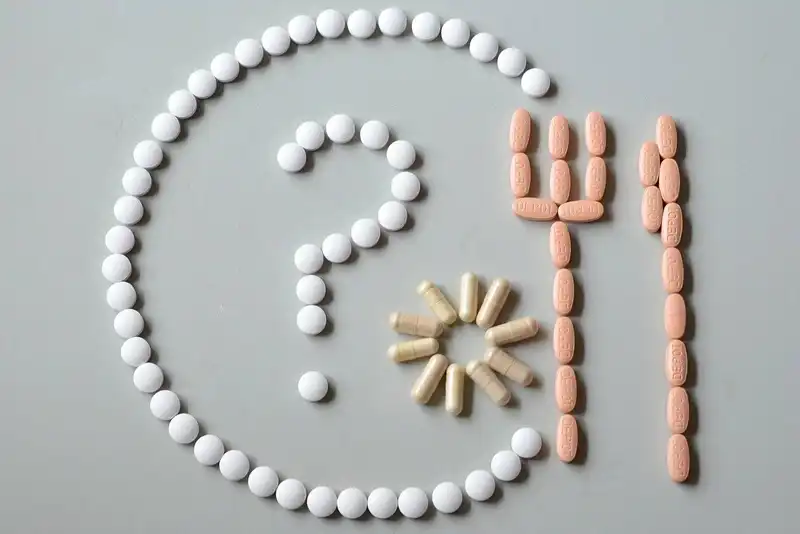What is a Food Additive and Why Are they Harmful?
What is a Food Additive?
Any substance added to food which changes the characteristics of the food products is considered a food additive. The additives can be used in common food during processing, production, packaging or storage of the food.
There are two distinctions when it comes to food additives- direct and indirect.
- Direct - added to food for a specific purpose. An example would be the use of xanthan gum as a direct additive to provide texture for foods. Most direct food additive are listed on the ingredient labels.
- Indirect - refers to trace amounts of substances that become a part of the food source due to food handling, packaging or storage. Manufacturers must pass food standards set forth by the United States Food and Drug Administration (FDA) to ensure safety during packaging.
How Are Additives Approved for Use in Foods?
Food manufacturers must follow regulations called Good Manufacturing Practices (GMP) to ensure food safety standards are met. The GMP puts limits on the amount of ingredients used in food. The guidelines are constantly being amended for recognized safe practices.
For example, food coloring is being more strictly monitored than ever before. The FDA is responsible for the approval of any food additive substances used. If a manufacturer wants to introduce a new color additive they must first petition the FDA approval.
The FDA will then decide whether the substance is safe for use by evaluating-
- the substances properties and composition.
- the daily intake amount usually consumed.
- immediate and long-term health effects.
- various other safety factors.
Procedures changed in 1999 that saw the FDA and the USDA working in unison to review which proposed ingredients used in processed meat and poultry would be accepted. Federal officials collected data on how much and how often Americans consumed of the new additives. The results bolstered new research on the safety and continued use of the food additive.
If the study found new evidence suggesting that an additive that's already being used is unsafe, or needs to be looked at further, federal authorities may prohibit its use until further studies are done to determine its safety.
How are Food Additives Harmful?

Sometimes an artificial food source is often used to preserve food safety. Others provide nutritional benefits as well. However, there are artificial additives that can have health risks. Additives like food dyes, thickeners or flavorings are added to foods to appeal to the consumer but they aren't always healthful.
Known or Potential Health Risks
The United States Food and Drug Administration FDA has approved hundreds of additives. However, one study or many hasn't been adequate enough to determine whether many of them are safe for human consumption.
Some animal studies linked the following to artificial additives-
- Cancers in lab rats
- Diarrhea and nausea
- Increased risk of heart disease
- Asthma and allergic reactions to chemicals used on processed meats to prevent discoloration.
- Hyperactivity and ADD (attention deficit disorder) in children
- A resistance to antibiotics due to their use in food
- Headaches caused by the substance monosodium glutamate (MSG) and others.
- Weight gain brought on by added sugars and sweeteners.
- Interference with hormone regulation causing weight loss or weight gain.
- Neurological problems from consuming aspartame
The FDA requires certain substances such as a sodium nitrite and monosodium glutamate to have specific listings on food labels due to their health risks and possible side effects. However, some food manufacturers will list other additives in a generic fashion under "spices" or "added flavoring" so as not to reveal the special ingredient to competitors.
Read Food Labels
With the massive list of naturally occurring and synthetic substances added to food products it's important to read labels. and understand the health risks or side effects. Even simple soft drinks are loaded with artificial sweeteners and high fructose corn syrup which can cause an array of heath effects.
Danger of Pro-longed Exposure
Because the FDA allows for small amounts of substances with known risks to be added to foods, it's possible for long-term exposure could cause harm. The FDA has concluded that most substances added to the food supply are too minuscule to cause harm but there haven't been enough studies done to determine the dose-related effects of of these additives.
Risk of Additive Effects
Solitary exposure to additives is relatively low risk, but because food processing involves the additives on a grand scale the human consumer is often exposed to many chemicals. An additive interacting with other chemicals can become a health hazard.
Many processed foods and other products can have multiple substances within them. It is impossible to tell which specific food substance is the root cause of a health problem. This is why individuals with allergies are instructed to go on a bland diet and re-introduce foods to see which one might be the cause of the allergy.
A Food Additive Wrap-up

- For years and artificial food ingredient has been added to preserve food for convenience, make it more flavorful, and reduce serious nutritional deficiencies among consumers.
- The FDA decides whether a food additive is safe to be used by evaluating the substance in question.
- There are both direct and in-direct food additives.
- Ice cream and baked goods often have trans fats in them which came from additives during food processing.





